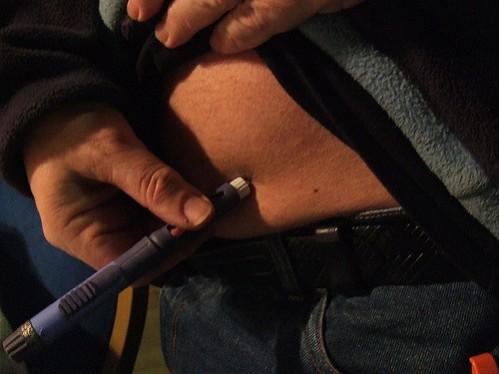People with diabetes face a real challenge during the winter season. The cold weather coupled with reduced physical activity puts stress on the body, causing it to go into a fight-or-flight mode. This results in the release of natural survival hormones like adrenaline and cortisol. Consequently, the liver releases more glucose for energy leading to increased blood sugar levels.
Dr H.P. Bharathi, Deputy Chief Medical Officer, Jindal Naturecure Institute says: "Presently, more than 50 million people in India have diabetes and it is expected to go over 6 crores by 2025. So, there's a big challenge in front of the country to tackle this rising concern. A naturopathic approach recommending specific behavioural changes can help in the effective management of diabetes during the winters."

He shares 10 naturopathy and yoga tips that can help people with diabetes during the cold season.
1. Diet
A well-balanced diet is crucial to keep diabetes in control no matter the season. It is recommended to include plenty of vegetables, fruits, whole grains, lentils, beans, and oatmeal. Sweets and fatty foods should be avoided. Also, diabetics should refrain from consuming dry fruits as the fructose in them may spike the sugar level.
2. Sufficient Hydration
It is essential to keep the body hydrated at all times to get rid of the excess glucose through urine. Water should be the primary beverage choice as other beverages are loaded with preservatives and sugar.
3. Yoga
The ancient practice of yoga can work wonders on the body, helping people with diabetes to keep the disease under control and lead a normal, happy life. Science has shown that specific yoga poses that involve the twisting and stretching of the internal muscles and organs stimulate the pancreas and endocrine system. This facilitates insulin secretion, which keeps the blood glucose levels under check.
4. Alternative Treatments
Alternative treatment methods like acupuncture, physiotherapy, hydrotherapy, etc., can restore harmony to the body in several ways. Acupuncture, where thin needles inserted into specific points in the body, can help with weight loss, control blood sugar levels, and reduce insulin resistance. Physiotherapy and hydrotherapy promote neurological and musculoskeletal functions that aids in weight loss, reduces stress levels, and lowers blood pressure.
5. Proper Sleep
Sound sleep is vital as the body relies on it to repair itself from exposure to toxins, daily stressors, and much more. Diabetics should aim for at least 6-7 hours of continuous sleep daily to let the body recuperate from damages and boost the immune system.

6. Mental Health
Those affected with diabetes live with a lot of stress. It can cause spurts of anxiety, mood change, confusion, and depression. The American Diabetes Association says that Seasonal Affective Disorder (SAD) may occur during winters; however, it is treatable. Spending time with loved ones, indulging in hobbies, or getting professional help are some of the ways through which diabetics can find relief.
7. Personal Hygiene
To maintain personal hygiene, people with diabetes should wash their hands frequently and thoroughly with a natural soap. Apart from that, saline rinses using a Neti pot should also be practiced as it keeps the respiratory passages clear.
8. Lose Weight
Obesity can increase the risk of developing type 2 diabetes by 80-85 percent. For people with obesity, the pancreas cannot produce enough insulin to meet the body's needs. Therefore, losing weight becomes the only option to stay healthy and fit. Regular exercise, brisk walks, etc., should be incorporated into daily life to get rid of excess weight.
9. Avoid Immune Suppressing Foods
Diabetics should stay away from high-fat food, alcohol, caffeine, and white sugar, suppressing the immune system's effects. Too much high-fat foods can block the lymphatic system, hindering the body's ability to fight infections.
10. Spend Time Outdoors
Spending time outdoors or in nature not only boosts mood but also increases Vitamin D levels in the body. Vitamin D is an essential component that enhances the body's ability to recognise pathogens and come up with a response against them, especially influenza.

Diabetes care is complex and it goes well beyond glucose control. Physical activity, healthy eating, and maintain proper body weight are crucial factors in preventing, managing, and reversing diabetes. Naturopathy explores a wide range of factors to determine which ones should be prioritized and how they can be modified to aid diabetics to effectively manage their condition during the winter season.









!['Had denied Housefull franchise as they wanted me to wear a bikini': Tia Bajpai on turning down bold scripts [Exclusive]](https://data1.ibtimes.co.in/en/full/806605/had-denied-housefull-franchise-they-wanted-me-wear-bikini-tia-bajpai-turning-down-bold.png?w=220&h=138)



